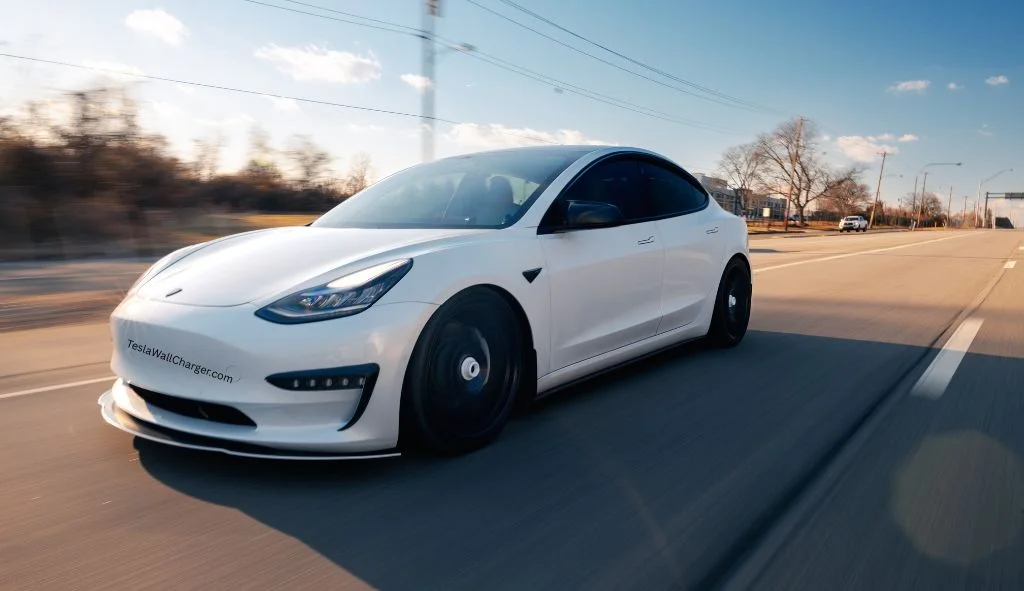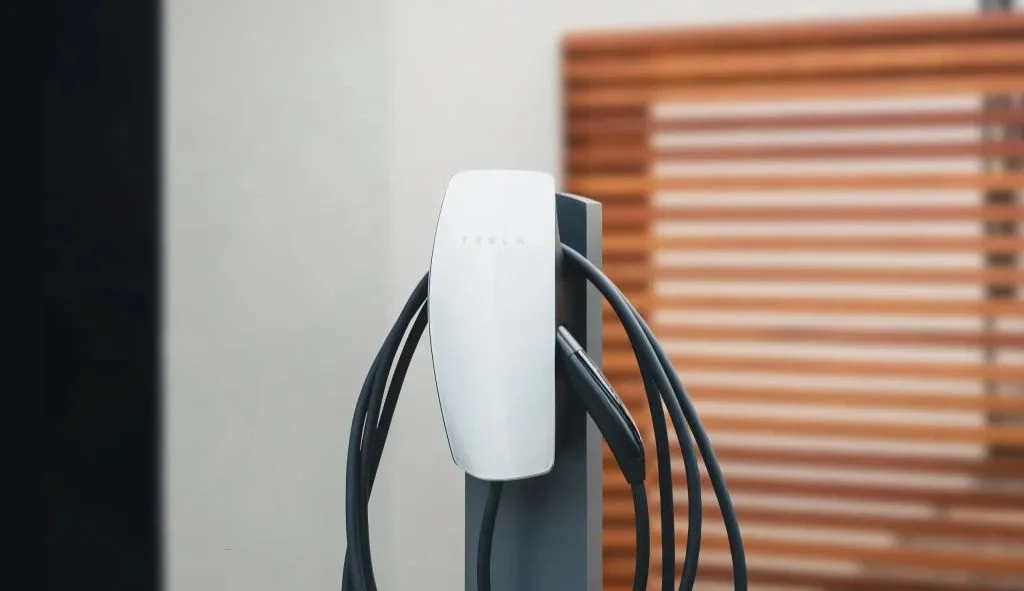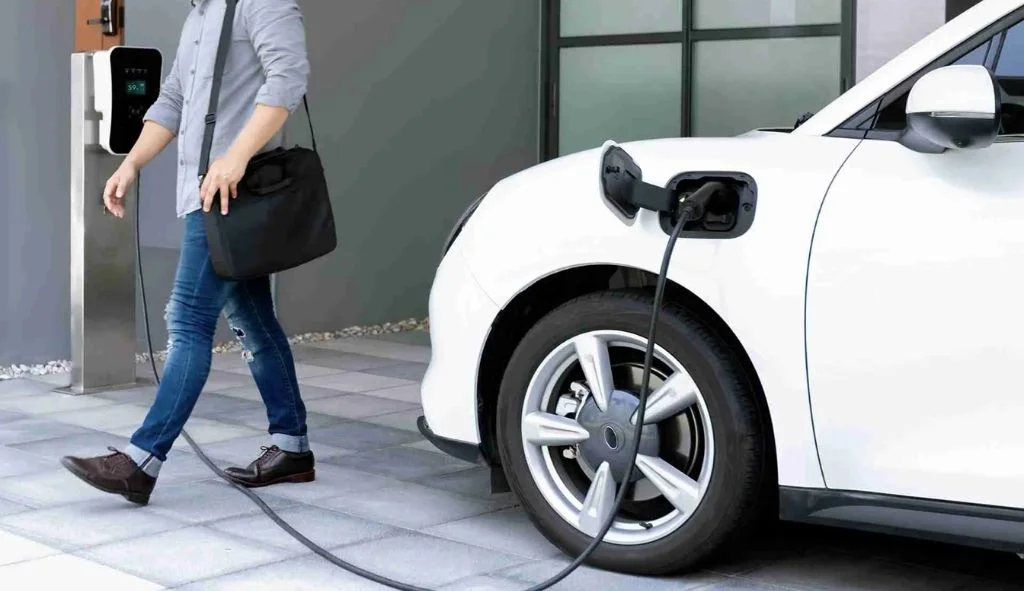As a Tesla owner or prospective buyer, understanding charging costs is crucial for making informed decisions about your electric vehicle investment. With rising gas prices and increasing environmental consciousness, knowing exactly how much it costs to charge your Tesla at home can help you maximize your savings while enjoying the convenience of electric driving.
Key Takeaways
- Home charging costs range from $10.15 to $23.73 for a full charge, depending on your Tesla model and local electricity rates
- Tesla owners save $81-87 monthly on fuel costs compared to gas vehicles, translating to $980-1,050 in annual savings
- Installation costs for Tesla Wall Connectors range from $1,175 to $6,425, depending on your home’s electrical infrastructure
- Time-of-use electricity rates can reduce charging costs by up to 33%, with off-peak rates averaging $0.11/kWh versus $0.25/kWh during peak hours
- Solar charging reduces costs to just $0.06/kWh after payback period, offering the most economical long-term charging solution
Tesla Model Charging Costs: Complete Breakdown by Model
Understanding the specific costs for your Tesla model is essential for accurate budgeting. Each Tesla variant has different battery capacities and efficiency ratings that directly impact charging expenses.
2025 Tesla Model Specifications and Charging Costs
| Tesla Model | Battery Capacity (kWh) | Range (Miles) | Full Charge Cost* | Cost per Mile | Monthly Cost** |
|---|---|---|---|---|---|
| Model 3 Standard Range | 62.5 | 272 | $12.06 | $0.044 | $48.77 |
| Model 3 Long Range | 82.0 | 358 | $15.82 | $0.044 | $48.61 |
| Model 3 Performance | 82.0 | 315 | $15.82 | $0.050 | $55.25 |
| Model Y Standard Range | 75.0 | 279 | $14.47 | $0.052 | $57.05 |
| Model Y Long Range | 75.0 | 330 | $14.47 | $0.044 | $48.24 |
| Model Y Performance | 75.0 | 303 | $14.47 | $0.048 | $52.53 |
| Model S | 100.0 | 405 | $19.29 | $0.048 | $52.40 |
| Model S Plaid | 100.0 | 396 | $19.29 | $0.049 | $53.59 |
| Model X | 100.0 | 348 | $19.29 | $0.055 | $60.99 |
| Model X Plaid | 100.0 | 333 | $19.29 | $0.058 | $63.73 |
| Cybertruck | 123.0 | 340 | $23.73 | $0.070 | $76.78 |
*Based on US average electricity rate of $0.164/kWh and 85% charging efficiency
**Calculated for 1,100 miles monthly driving
How Charging Costs Vary by Battery Size
The relationship between battery capacity and charging costs is straightforward: larger batteries cost more to charge but typically provide greater range. The Tesla Model 3 Standard Range offers the most economical charging at $12.06 per full charge, while the Cybertruck’s massive 123 kWh battery costs $23.73 to fully charge.
However, cost per mile tells a different story. The Model 3 and Model Y Long Range variants achieve the lowest cost per mile at approximately $0.044, demonstrating superior efficiency despite their larger batteries.

Six Critical Factors That Affect Tesla Charging Costs
1. Local Electricity Rates: The Primary Cost Driver
Your local electricity rate is the single most important factor determining charging costs. Rates vary dramatically across the United States, from as low as $0.11/kWh in North Dakota to over $0.41/kWh in Hawaii.
Regional Cost Variations for Model Y Long Range:
| Region | Rate ($/kWh) | Full Charge Cost | Monthly Savings vs. Gas* |
|---|---|---|---|
| Cheapest States (ND, ID) | $0.115 | $10.15 | $98.55 |
| US Average | $0.164 | $14.47 | $82.30 |
| Most Expensive (HI, CT) | $0.370 | $32.65 | $30.12 |
*Compared to 30 MPG gas car at $3.56/gallon
Understanding your local rates is crucial for accurate cost projections. Check your electricity bill or contact your utility provider to determine your exact rate.
2. Time-of-Use Electricity Rates: Strategic Charging Timing
Many utility companies offer time-of-use (TOU) pricing that charges different rates depending on when you use electricity. These programs can significantly reduce your Tesla charging costs if you charge during off-peak hours.
Typical TOU Rate Structure:
- Off-Peak (11 PM – 7 AM): $0.11/kWh
- Peak (5 PM – 9 PM): $0.25/kWh
- Mid-Peak (7 AM – 5 PM): $0.16/kWh
By charging your Tesla during off-peak hours, you can reduce charging costs by up to 33% compared to peak rates. Tesla’s built-in scheduling features make it easy to automatically charge during the cheapest rate periods.
3. Charging Efficiency and Energy Loss
Not all electricity from your wall outlet makes it into your Tesla’s battery. Level 2 home charging typically operates at 85% efficiency, meaning 15% of the electricity is lost as heat during the charging process.
Efficiency by Charging Method:
- Level 1 (120V): 80-85% efficiency
- Level 2 (240V): 85-90% efficiency
- DC Fast Charging: 90-95% efficiency
This efficiency loss is already factored into our cost calculations, but understanding it helps explain why your electricity bill might be slightly higher than basic battery capacity calculations suggest.
4. Charging Location: Home vs. Public vs. Supercharger
Where you charge significantly impacts costs. Home charging is consistently the most economical option, while public charging and Tesla Superchargers cost significantly more.
Charging Cost Comparison (Model Y Long Range):
| Charging Location | Rate Range | Full Charge Cost | Cost per Mile |
|---|---|---|---|
| Home (Average Rate) | $0.164/kWh | $14.47 | $0.044 |
| Public Level 2 | $0.20-$0.30/kWh | $17.64-$26.47 | $0.053-$0.080 |
| Tesla Supercharger | $0.25-$0.50/kWh | $17.81-$35.62 | $0.054-$0.108 |
Tesla Supercharger rates vary by location and time of day, with some locations charging as low as $0.11/kWh and others reaching $0.60/kWh. Urban areas typically have higher Supercharger rates than rural locations.
5. Seasonal and Weather Impacts on Charging Costs
Cold weather significantly affects Tesla battery efficiency and charging costs. Batteries require more energy to heat up before charging, and overall efficiency decreases in cold temperatures.
Cold Weather Impact:
- 10-20% efficiency reduction in temperatures below 32°F
- Additional preconditioning energy required for optimal charging
- Increased cabin heating during charging sessions
Tesla’s battery preconditioning feature helps minimize these effects by warming the battery before charging, but this process consumes additional energy. Planning for increased winter charging costs is essential for accurate budgeting.
6. Vehicle Age and Battery Degradation
Tesla batteries experience minimal degradation over time, but this factor can slightly impact charging costs. Older batteries may require more energy to reach full capacity, though the effect is typically less than 5% over the first 100,000 miles.
Battery Health Considerations:
- Avoid frequent 100% charging to minimize degradation
- Use 80% daily charge limit for optimal battery health
- Monitor charging efficiency through the Tesla app
Regular monitoring of your charging costs can help identify any efficiency changes over time.
Tesla Wall Connector Installation: Costs and Considerations
Installing a Tesla Wall Connector provides the fastest and most convenient home charging experience Understanding installation costs and requirements helps you plan your investment properly.
Tesla Wall Connector Pricing and Options
Tesla offers several home charging solutions with different capabilities and price points:
Tesla Charging Equipment Options:
| Product | Price | Installation Cost | Max Charging Speed | Key Features |
|---|---|---|---|---|
| Mobile Connector | $300 | $0-$1,500 | 30 mph | Portable, multiple adapters |
| Wall Connector | $425 | $750-$1,500 | 44 mph | Fastest home charging, WiFi |
| Universal Wall Connector | $550 | $750-$1,500 | 44 mph | Works with all EVs |
The Tesla Wall Connector delivers up to 11.5 kW of power, providing up to 44 miles of range per hour of charging. This represents the maximum charging speed that current Tesla vehicles can accept from 240V AC sources.
Installation Cost Breakdown by Complexity
Installation costs vary significantly based on your home’s electrical infrastructure:
Installation Scenarios:
| Complexity Level | Description | Typical Cost Range | Total Investment |
|---|---|---|---|
| Simple Install | Existing 240V outlet nearby | $750-$1,000 | $1,175-$1,425 |
| Standard Install | New 240V circuit from panel | $1,200-$1,800 | $1,625-$2,225 |
| Complex Install | Panel upgrade required | $2,500-$4,000 | $2,925-$4,425 |
| Maximum Complexity | New service, long wire runs | $4,000-$6,000 | $4,425-$6,425 |
Factors Affecting Installation Costs:
- Distance from electrical panel to installation location
- Available electrical capacity in your home
- Permit and inspection fees (typically $100-$300)
- Electrical panel upgrades if needed
- Trenching or conduit work for exterior installations
Electrical Panel Requirements and Upgrades
Many homes require electrical panel upgrades to safely support Tesla charging. Tesla Wall Connectors typically require a dedicated 60-amp circuit, which older electrical panels may not accommodate.
Panel Upgrade Indicators:
- Main panel rated at 100 amps or less
- No available breaker slots for new circuits
- Lights dimming when large appliances start
- Frequent circuit breaker trips
Panel upgrades typically cost $1,500-$3,000 but ensure safe, reliable charging and may be required by local electrical codes. Consult with a Tesla Certified Installer to assess your specific requirements.
Step-by-Step Guide: Installing Tesla Home Charging
Phase 1: Planning and Assessment
Step 1: Evaluate Your Electrical System
Contact a Tesla Certified Installer to assess your home’s electrical capacity. They’ll determine if your panel can support a Tesla Wall Connector and identify any necessary upgrades.
Step 2: Choose Your Installation Location
Consider factors like:
- Proximity to where you park
- Distance from electrical panel
- Weather protection requirements
- Future vehicle considerations
Step 3: Obtain Permits
Your installer will typically handle permit applications, but verify this is included in your quote. Permit costs range from $100-$300 depending on local requirements.
Phase 2: Installation Process
Step 4: Schedule Installation
Tesla recommends scheduling installation before vehicle delivery to ensure immediate charging capability Installation typically takes 2-4 hours for standard setups.
Step 5: Installation Day
Your certified installer will:
- Install the dedicated 240V circuit
- Mount the Wall Connector
- Connect to your home’s WiFi network
- Test the system with your Tesla
Step 6: System Testing and Setup
Verify proper operation and configure charging schedules through the Tesla app. Set up any time-of-use scheduling to maximize cost savings.
Phase 3: Optimization and Monitoring
Step 7: Configure Charging Settings
- Set daily charge limit (typically 80% for daily use)
- Schedule charging during off-peak hours
- Enable departure time features for preconditioning
Step 8: Monitor Performance
Use the Tesla app to track charging costs, energy usage, and system performance. Regular monitoring helps identify any issues and optimize savings.
Cost Comparison: Tesla vs. Gasoline Vehicles
Understanding the financial benefits of Tesla ownership requires comparing total fuel costs over time. The savings are substantial, especially with current gas prices.
Monthly and Annual Fuel Cost Analysis
Comparison Based on 1,100 Miles Monthly Driving:
| Vehicle Type | Fuel Cost per Mile | Monthly Cost | Annual Cost | 5-Year Total |
|---|---|---|---|---|
| Tesla Model 3 LR (Home) | $0.044 | $48.61 | $583.32 | $2,916.60 |
| Tesla Model Y LR (Home) | $0.044 | $48.24 | $578.88 | $2,894.40 |
| Gas Car (30 MPG) | $0.119 | $130.54 | $1,566.48 | $7,832.40 |
| Tesla Savings | $0.075 | $82.30 | $987.60 | $4,938.00 |
Based on $3.56/gallon gas price and $0.164/kWh electricity rate
Break-Even Analysis for Installation Investment
The upfront installation cost is quickly recovered through fuel savings:
Payback Period Calculation:
- Standard installation cost: $1,625
- Monthly fuel savings: $82.30
- Payback period: 19.7 months
- 5-year net savings: $3,313 ($4,938 savings – $1,625 installation)
Even with a complex installation costing $4,425, the payback period extends only to 53.8 months, with positive returns continuing for the life of your Tesla.
Long-Term Financial Benefits
Tesla ownership provides compounding financial benefits over time:
10-Year Financial Projection:
- Total fuel savings: $9,876
- Maintenance savings: $3,000-$5,000 (no oil changes, brake service)
- Total ownership savings: $12,876-$14,876
These calculations demonstrate why Tesla charging costs represent an investment in long-term savings rather than just an expense.
Maximizing Your Tesla Charging Savings
Optimal Charging Strategies
Daily Charging Best Practices:
- Charge to 80% for daily use, 100% only for long trips
- Use scheduled charging during off-peak hours
- Precondition battery in extreme weather
- Monitor charging efficiency through the Tesla app
Time-of-Use Optimization:
- Set charging to start during off-peak hours (typically 11 PM – 7 AM)
- Use Tesla’s departure time feature to complete charging just before leaving
- Avoid peak rate periods (typically 5 PM – 9 PM)
Solar Integration for Maximum Savings
Solar charging represents the ultimate in cost reduction for Tesla owners. After the initial investment payback period, solar electricity costs approximately $0.06/kWh.
Solar Charging Benefits:
- Model Y Long Range solar charging cost: $5.29 per full charge
- Monthly solar charging cost: $17.65 (vs. $48.24 grid charging)
- Annual savings with solar: $367 additional savings
Consider solar installation if you plan long-term Tesla ownership and have suitable roof conditions. Many solar installers can size systems specifically to accommodate Tesla charging needs.
Frequently Asked Questions
1. How much does it cost to charge a Tesla Model Y at home?
Charging a Tesla Model Y Long Range at home costs approximately $14.47 for a full charge using the US average electricity rate of $0.164/kWh. This translates to about $0.044 per mile or $48.24 monthly for average driving of 1,100 miles. The exact cost depends on your local electricity rates, which range from $0.11/kWh in the cheapest states to over $0.41/kWh in Hawaii.
2. Is it cheaper to charge Tesla at home or at Superchargers?
Home charging is significantly cheaper than Supercharging. While home charging costs $0.044 per mile for a Model Y, Supercharger costs range from $0.054 to $0.108 per mile depending on location and rates. Supercharger rates vary from $0.25 to $0.60 per kWh, making them 50-300% more expensive than typical home rates. Use Superchargers primarily for long-distance travel rather than daily charging.
3. How much does Tesla Wall Connector installation cost?
Tesla Wall Connector installation costs range from $1,175 to $6,425 total. This includes the $425 Wall Connector plus installation costs of $750-$6,000 depending on complexity. Simple installations with existing 240V service cost around $750, while complex installations requiring panel upgrades can reach $6,000. Most installations fall in the $1,200-$2,500 range.
4. Can I use time-of-use rates to reduce Tesla charging costs?
Yes, time-of-use (TOU) rates can reduce charging costs by up to 33%. Off-peak rates typically cost $0.11/kWh compared to $0.25/kWh during peak hours. Tesla’s scheduled charging feature allows automatic charging during the cheapest rate periods. Contact your utility company to enroll in TOU programs and configure your Tesla to charge during off-peak hours.
5. How does cold weather affect Tesla charging costs?
Cold weather increases Tesla charging costs by 10-20% due to reduced battery efficiency and preconditioning requirements. Batteries need warming before optimal charging, consuming additional energy. Tesla’s preconditioning feature helps minimize this impact by preparing the battery before charging. Plan for increased winter charging costs and consider using scheduled charging to precondition during off-peak hours.
6. What’s the difference between Mobile Connector and Wall Connector?
The Tesla Wall Connector provides faster charging (up to 44 mph) compared to the Mobile Connector (up to 30 mph). The Wall Connector requires professional installation but offers WiFi connectivity and Tesla app integration. The Mobile Connector is portable and plugs into standard outlets but charges slower. For daily home charging, the Wall Connector provides optimal speed and convenience.
7. How much can I save compared to gasoline with Tesla charging?
Tesla owners typically save $82-87 monthly on fuel costs compared to gas vehicles. Based on 1,100 miles of monthly driving, a Tesla costs about $48 compared to $131 for a 30 MPG gas car. This represents annual savings of approximately $987, or nearly $5,000 over five years. Savings increase with higher gas prices and lower electricity rates.
8. Do I need to upgrade my electrical panel for Tesla charging?
Panel upgrades are required if your home has a 100-amp or smaller main panel, no available breaker slots, or experiences voltage issues. Tesla Wall Connectors typically require a dedicated 60-amp circuit. Homes built before 1990 often need upgrades, costing $1,500-$3,000. A Tesla Certified Installer can assess your specific requirements during the initial consultation.
9. How efficient is Tesla home charging?
Tesla home charging operates at approximately 85% efficiency with Level 2 (240V) charging. This means 15% of electricity is lost as heat during the charging process. Level 1 (120V) charging is slightly less efficient at 80-85%, while DC fast charging achieves 90-95% efficiency. These efficiency factors are included in our cost calculations.
10. Can I charge my Tesla with solar panels?
Yes, Tesla charging with solar power is highly effective and economical. After the solar system payback period, solar electricity costs approximately $0.06/kWh compared to $0.164/kWh for grid electricity. This reduces a Model Y full charge cost from $14.47 to $5.29. Solar systems can be sized to accommodate Tesla charging needs, providing long-term energy independence and maximum savings.


